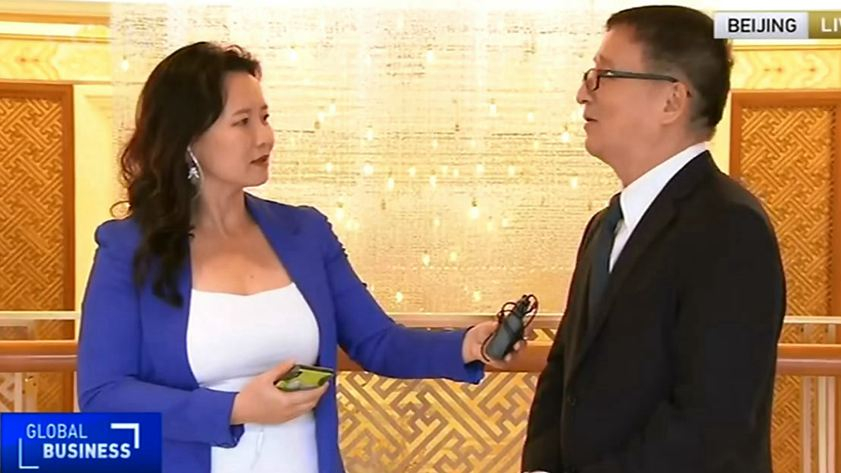China and the United States have agreed to hold the 13th round of China-U.S. high-level economic and trade consultations in Washington early next month.
Li Cheng, director of the Brookings Institution's John L. Thornton China Center was happy to see the talks resume, and stressed that making the deal sustainable meets the interests from both sides.
“It’s in both countries' interest to make the deal sustainable after almost two years of negations,” Li told CGTN at the sideline of this year’s China Development Forum's Special Session, adding that the deal should focus not only on the economic side and the trade front, but also other issues like security tensions and political mistrust.
Li argued that trade might not be the most important of tensions in China-U.S. relations.

CGTN’s Cheng Lei (L) speaks with Li Cheng, director of the Brookings Institution's John L. Thornton China. /CGTN Photo
“Without trade cooperation there is nothing left. So it will be devastating if these two countries don’t have strong bonds,” he said, remarking that the meaning of China- U.S. economic engagement is far beyond commercial interest.
While U.S. President Donald Trump demanded U.S. firms move production out of China, many American states and cities keep working with Chinese partners. Li claimed that state leaders and city administrators have less concern about “national strategic interest.”
“They certainly will not be upset with the so-called ‘China threat.’ What they see is business opportunities, jobs, tourism and cultural and educational exchanges,” he told CGTN.Li further stressed that China-U.S. relations should not be just decided by “politicians in Washington.”
“Not just let politicians in Washington to decide everything. I think the local governments should have a say, and they will become a major positive force,” he told CGTN.
And Li suggested that the business community should make their voices heard, too. “Now they still keep quiet. If China and the U.S. really decouple in the economic front, this will be devastating for American companies, because China is a major market,” he said.
 京公网安备:11010102007361号
Technical Support:Dongao Education Group
京公网安备:11010102007361号
Technical Support:Dongao Education Group